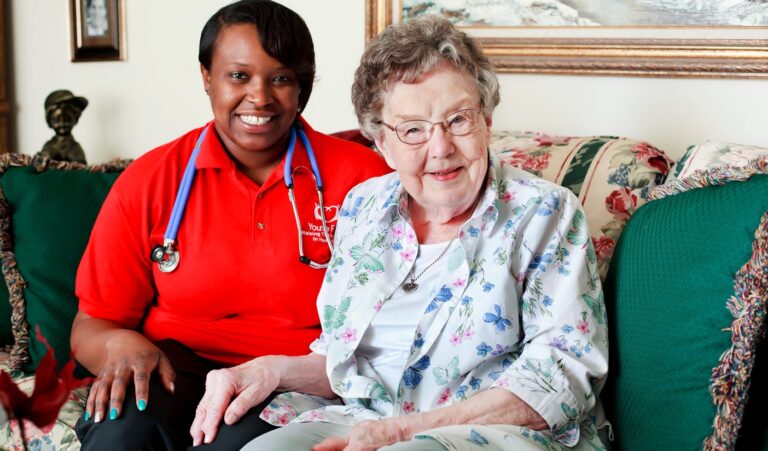Aging is an inevitable part of life’s journey, yet it’s often a topic we shy away from until it’s upon us. However, just as we plan for our education, careers, families, and vacations, it’s equally important – if not more so – to have a plan for aging gracefully with the best quality of life possible. My grandmother used to say, “failing to plan is planning to fail.” When I was younger, I really never understood the importance and depth of what she was saying. By proactively preparing for the physical, emotional, cognitive, and financial aspects of aging, we can navigate this stage of life with confidence and dignity. We will explore the essential components of creating a comprehensive plan for aging, empowering you to embrace the journey ahead with clarity and purpose.
I’ve been in healthcare for almost 40 years; what I know is that we are living longer but with more physical and cognitive challenges than ever before. This leaves us vulnerable to dependency on others to provide care/help for things we can’t do for ourselves. Who is going to provide this care/help when needed? If there is no plan in place, our family scrambles to get a crash course in reality. Most don’t even know where to start.
Cultivating Physical Well-being
Maintaining good physical health is key to enjoying a vibrant and fulfilling life as we age. Establishing healthy habits such as regular exercise, balanced nutrition, and adequate sleep will help your aging journey. I talk with many older adults about exercising and get the same answer over and over. “I walk every day”. Walking is necessary, but what about upper body strength? The first thing that usually goes on the body is the legs/ability to ambulate (walk) safely. Having good upper body strength helps to compensate for weakness in the legs when needing to transfer from one surface to another. Additionally, consider how you will adapt your living environment to support aging in place, such as installing handrails, grab bars, ramps, adequate lighting, and other accessibility features. Explore resources such as bed canes, mobility aides, hearing aids, accessing community support services, home care services, and other resources for managing daily activities and healthcare needs.
Nurturing Emotional Resilience
Emotional well-being is very important as we age. Cultivate strong social connections with friends, family, and community members that support a sense of belonging. Engage in activities that bring you joy and fulfillment, whether it’s hobbies, volunteering, or church functions/groups. Managing stress, anxiety, and depression by seeking professional help if/when needed will help you to embrace the inevitable changes and transitions that come with aging and help you approach them with resilience, acceptance, and a positive mindset. My grandmother used to always tell me, “It isn’t what happens to you, it’s how you handle it.” Being prepared to “handle it” makes all the difference!
Securing Financial Stability
Financial planning is a critical aspect of preparing for aging, ensuring that you have the resources needed to support your desired lifestyle and care needs. For example, many people call me and ask about care. When the discussion gets to money, most are shocked to discover Medicare or their supplemental insurance doesn’t pay for personal care.
Start by assessing your current financial situation, including income, expenses, assets, and liabilities. Develop a budget that includes healthcare costs, long-term care insurance, and other potential expenses associated with aging, such as physical care costs. Consider consulting with a financial advisor to help you create a comprehensive plan that aligns with your goals and priorities. Explore options for estate planning, including wills, trusts, advance directives, and power of attorney (POAs). There are different powers of attorney, such as Financial, General, Limited, Durable, and Medical. Each has specific duties and authority. Who will be making decisions for your best interest?
Cognitive Decline
Alzheimer’s, which is the most diagnosed of Dementia, starts at least 20 years before memory loss and other symptoms develop. You can see by this fact the importance of having your life journey plan in place. It is equally important to have your legal affairs in order before a formal (doctor) diagnosis of any type of Dementia. Once a person has a formal diagnosis, it can be difficult to make legal decisions/sign legal documents for themselves. Consult an elder law attorney for help in getting your affairs in order, like POA’s, as mentioned above.
Care for individuals with cognitive impairment presents unique challenges, from managing symptoms to ensuring safety and quality of life. End-of-life care preferences should be discussed openly and honestly. Dementia is a progressive condition, and care needs may change over time; each person’s Dementia journey differs. Addressing key aspects such as safety, communication, support, and your desires will help to ensure compassionate care and enable your loved ones to get the best care possible with a personalized plan of care in place.
Conclusion
Does your family know what you would want if you were to have a serious health problem and could not speak for yourself? Does your family have the legal right to carry out your wishes?
What services would be available if you become sick, frail, or need help/care?
Creating a plan for aging is not about avoiding or denying the inevitable but rather embracing it with intention, purpose, and resilience. If I had a dollar for every panicked call I’ve received saying, “they are discharging my mom/dad/grandmother from the hospital or rehab tomorrow! I don’t know what to do!” I could go on a luxurious vacation! When a loved one has a traumatic event happen (fall/stroke, etc.) and they are admitted to a hospital, please know they will be discharged at some point. Don’t wait until the nurse or doctor tells you they will be discharged tomorrow to get a plan in place. We want the best possible successful outcomes for our loved ones, and this takes planning!
For more information, please contact us at info@yourefirst.net. We can help you plan for life’s journey!






